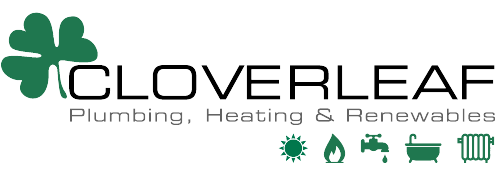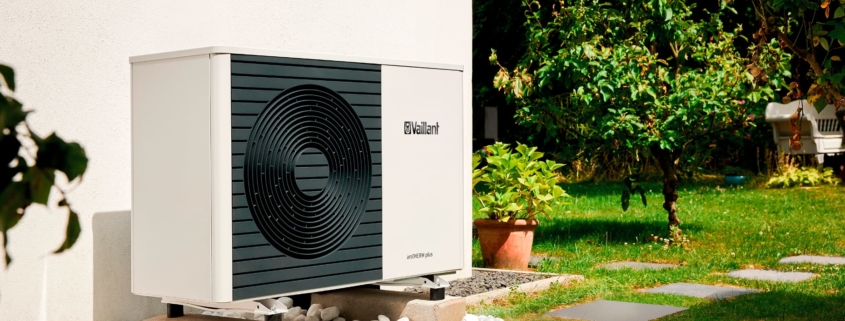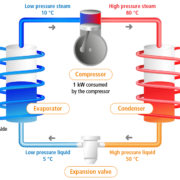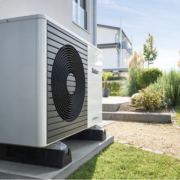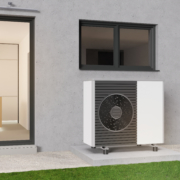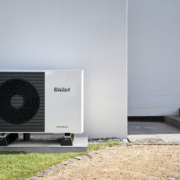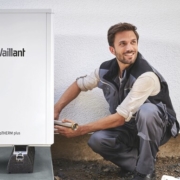Is an Air Source Heat Pump right for me?
The government have announced they will contribute £5000 towards switching from a gas boiler to a low carbon Air Source Heat Pump.
With the onset of natural gas prices increasing over the next few years it’s the natural step to move across to low carbon Air Source Heat Pump as soon as possible to meet our carbon emissions targets.
It will also allow people to make the switch to low carbon heating sooner without it costing substantially more than a straight boiler upgrade.
As is so often the case with government schemes the devil is in the detail and so far, we don’t have that detail.
I have put together a check list to see if your house meets the criteria of an air source heat pump. Read the below points to see if you are on the right path to getting your Air Source Heat Pump.
As a company we are fully invested in green technology, we are as ready as we can be to provide greener solutions over a standard boiler upgrade.
We are looking forward to helping you and we pride ourselves on providing the correct advice so please give us a call.
Air Source Heat Pump – Check List
✔️ Consider The Properties Insulation Values
If your property is not well insulated it could actually cost you more in electricity to heat your home than what it did in gas! This is particularly relevant on older properties where there is no cavity wall insulation or solid wall construction. This does not mean you cannot have a heat pump in an older house however money may have to be invested in insulation first before committing to the switch.
✔️ Aesthetics
Let’s be honest, heat pumps are not particular pretty so please consider that the heat pump will need to live outside relatively close to the property to allow free air circulation around the unit to achieve maximum efficiency. It will not work shoving it in an alley way or tight into a corner with too many surfaces around blocking the air flow.
✔️ Orientation
Because a heat pump extracts heat from the surrounding air it is more efficient facing South, South East or South West. This does not mean it will not work facing East or West but the longer it is kept facing towards the sun the higher efficiency the heat pump can achieve which is why facing North is not recommended. Heat pumps can achieve up to 400% efficiency when optimised which means for every 1kw of electricity used you can receive up to 4kw in useful heat efficiency in return. A gas boiler can only achieve around 95% efficiency.
✔️ Correct Design
It is absolutely imperative that your heat pump is designed correctly to meet the heat load of the property. Under sized means you will run out of hot water and probably be cold in the house as the system struggles to reach adequate flow temperate. An oversized heat pump means the unit will use an excess of electricity due to cycling on and off too regularly. Use a professional company such as ourselves to calculate the heat loading for you.
✔️ Bigger Radiators
If we are retro fitting an ASHP onto an existing heating system it is highly likely that your current radiators will be under sized. This is because an ASHP cannot reach the same flow temperatures as a conventional gas boiler. This is why ASHPs are much more suited to under floor heating where the flow temperature only needs to be around 45 degrees due to the large surface area of the floor. This will be worked out when we visit your property and work out the heat loss of each room and if the current heat emitter will heat the air space in the depths of winter.
✔️ Bigger Cylinder
A serious consideration when purchasing a heat pump is that you will need a larger space inside the property to site the cylinder and possibly a buffer vessel. You cannot connect a heat pump to an existing hot water cylinder, it will simply not work as the indirect heating coil will not be sufficient to heat the water at the lower flow temperatures. The cylinder also needs to be bigger due to the fact the heat pump will be storing hot water for you when its most efficient to do so, probably in the middle of the day when you’re at work, it also cannot react quickly to hot water being drawn off so a larger capacity cylinder is vitally Important to prevent running out of hot water.
✔️ Sign Off And Commissioning
It is crucial that the heat pump is designed and signed off by an MCS accredited installer to receive either the RHI payment from Ofgem or any sort of funding from the government for that matter.
We have our own MCS accreditation, but we also work alongside other manufactures such as Vaillant, Grant UK and Nu-Heat that are heavily involved in the design process. If they are happy with the Install this means they will honour the warranty on the appliance and provide on-going support.
✔️ Maintenance
Last but certainly not least remember to get your heat pump serviced on a regular basis. It is a complicated bit of kit and does need regular checks to ensure it’s set up correctly and there are no Issues which may affect the efficiency.
I hope this has been Informative, please contact us if you would like to ask us any advice or are Interested in switching to low carbon heating or solar thermal.
– Dean Dawe, Cloverleaf
